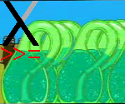Собсвенно, нужно получить слуайное число, и забить его в переменную. Можно и другими способами.

Ответ на:
комментарий
от Deleted
Ответ на:
комментарий
от dilmah

Ответ на:
комментарий
от Deleted

Ответ на:
комментарий
от ShTH

Ответ на:
комментарий
от ShTH

Ответ на:
комментарий
от ShTH
Ответ на:
комментарий
от jtootf
Ответ на:
комментарий
от qnikst
Ответ на:
комментарий
от Deleted

Ответ на:
комментарий
от Deleted

Ответ на:
комментарий
от ShTH
Ответ на:
комментарий
от LamerOk
Ответ на:
комментарий
от Deleted

Ответ на:
комментарий
от Deleted

Ответ на:
комментарий
от Deleted


Вы не можете добавлять комментарии в эту тему. Тема перемещена в архив.
Похожие темы
- Форум типы переменных (char или int) (2005)
- Форум system ($cmd, $ret) // $ret обманывает (2014)
- Форум Как записать вывод ls в $p(shell-переменную)? (2004)
- Форум Объявить переменную из вывода (2017)
- Форум Записать результат выполнения команды переменную (2013)
- Форум Вывод команды как переменная (2012)
- Форум переменная в system() (2004)
- Форум int и char (2003)
- Форум Как вывести содержимое переменной, имя которой записано в другой? (2005)
- Форум Как каждую строку вывода записать в переменную? (2024)